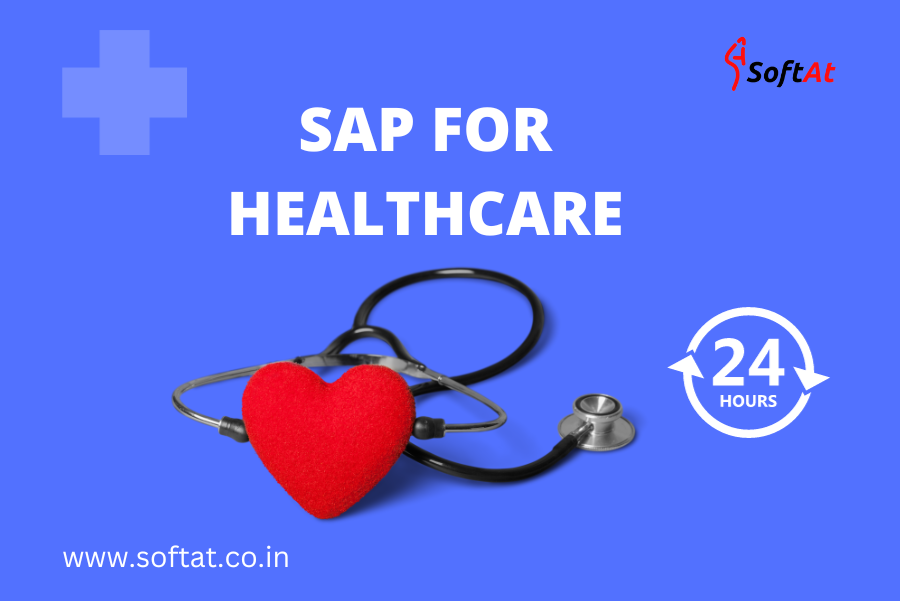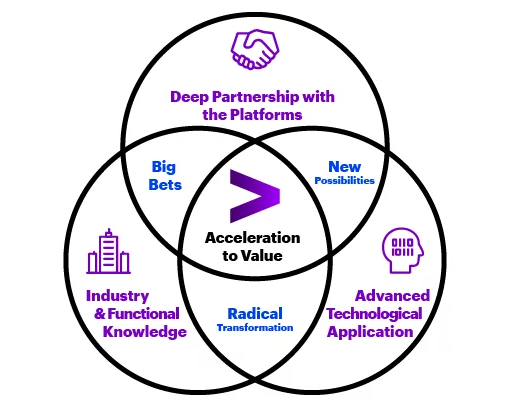In the fast-evolving landscape of healthcare, the effective management of resources, patient care, and data is paramount. The healthcare industry has been undergoing a significant transformation, with technology playing a pivotal role in improving patient outcomes, operational efficiency, and decision-making. One such technology that has been making waves in healthcare is SAP (Systems, Applications, and Products) software. In this blog, we will delve into the world of SAP for healthcare and how it is revolutionizing the way healthcare organizations operate and deliver care.
The Power of SAP in Healthcare
SAP, a leading enterprise resource planning (ERP) solution, is widely known for its capabilities in streamlining business processes, optimizing workflows, and providing real-time insights. When applied to the healthcare sector, SAP brings a host of benefits that have a profound impact on patient care and the overall management of healthcare organizations.
1. Integrated Patient Data Management
One of the critical aspects of delivering high-quality healthcare is having access to accurate and up-to-date patient information. SAP’s integrated platform enables healthcare providers to maintain a centralized electronic health record (EHR) system. This ensures that patient data, including medical history, test results, and treatment plans, is readily available to authorized healthcare professionals, leading to more informed decisions and improved patient outcomes.
2. Operational Efficiency
Healthcare facilities are complex organizations with numerous departments and workflows. SAP’s ERP solutions help streamline administrative processes, such as billing, inventory management, and human resources, reducing administrative overhead and enabling healthcare staff to focus more on patient care.
3. Data Analytics and Insights
In the age of big data, healthcare organizations can harness the power of SAP’s analytics capabilities to gain valuable insights. By analyzing patient data, clinical outcomes, and financial performance, healthcare providers can identify trends, predict patient needs, and make data-driven decisions that enhance patient care and optimize resource allocation.
4. Supply Chain Optimization
Efficient supply chain management is crucial in healthcare to ensure the availability of medical supplies, medications, and equipment. SAP enables healthcare facilities to monitor inventory levels in real-time, automate procurement processes, and reduce waste, ultimately leading to cost savings and better patient care.
5. Patient Engagement and Experience
SAP’s patient engagement solutions empower patients to take a more active role in managing their health. Through patient portals and mobile apps, individuals can access their health records, schedule appointments, and communicate with healthcare providers, fostering a more personalized and convenient healthcare experience.
Real-World Applications of SAP for Healthcare
Let’s explore a few real-world applications of SAP in healthcare:
- Clinical Decision Support: Hospitals use SAP to implement clinical decision support systems that provide physicians with evidence-based recommendations at the point of care, improving diagnostic accuracy and treatment planning.
- Population Health Management: Healthcare organizations leverage SAP analytics to identify at-risk populations, monitor health trends, and tailor interventions to improve the health of communities.
- Telemedicine Integration: SAP’s integration capabilities enable healthcare providers to seamlessly incorporate telemedicine solutions, expanding access to care and improving patient outcomes, especially in remote or underserved areas.
The Future of Healthcare with SAP
As healthcare continues to evolve, SAP is poised to play a pivotal role in shaping its future. The integration of emerging technologies like artificial intelligence (AI) and the Internet of Things (IoT) with SAP’s robust platform will enable healthcare organizations to achieve even greater efficiencies and better patient outcomes.
In conclusion, SAP for healthcare is not merely a software solution but a transformative force that empowers healthcare organizations to provide higher-quality care, enhance operational efficiency, and adapt to the changing healthcare landscape. By embracing SAP, healthcare providers can meet the evolving needs of patients and position themselves at the forefront of innovation in healthcare management. The future of healthcare is data-driven and patient-centric, and SAP is leading the way toward this exciting new era.
Free Bonuses:
The Future of Machines: Trends and Predictions
Top 5 Highest Paid SAP Modules





